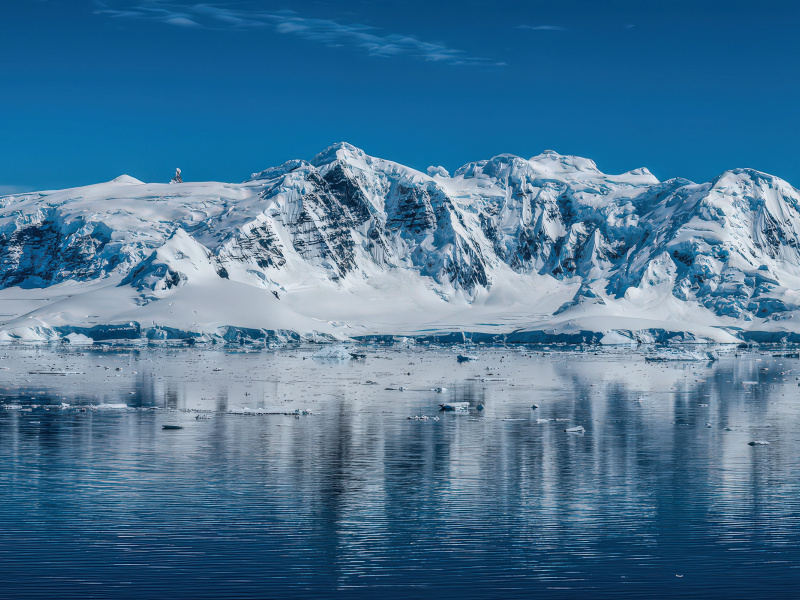Sustainability first
Harvesting to maintain long-term sustainability
Before we deployed our very first fishing net in the Southern Ocean, we reached out to WWF-Norway to ensure that our fishing operations would have as little impact as possible on the Antarctic ecosystem. Antarctic krill is considered one of the most environmentally sound sources for marine omega-3s – but only if harvesting maintains the long-term sustainability of the Southern Ocean’s ecosystem and protects all Antarctic species.
Certified-sustainable operations
Aker QRILL Company is recognized for its environmentally responsible Antarctic krill harvesting and processing. Achievements include our patented Eco-Harvesting technology that virtually eliminates by-catches, fully transparent and traceable operations, and MSC certification. In 2016, the Antarctic krill fishery, for the second year in a row, received an “A” rating by the Sustainable Fisheries Partnership for having a krill biomass that is in very good condition.
Transparent harvesting
Krill is a keystone species in the Antarctic Ocean. Aker QRILL Company has always considered it vital to protect the krill biomass as well as the many species that ultimately depend on krill as a food source.
We take great pride in our fully transparent Antarctic krill harvesting operation, the starting point for our products’ 100% traceability. By controlling the entire supply chain, from harvesting krill and throughout our production, we are able to guarantee the highest level of quality for our krill-derived products. Customers and end-users can rely on our ability to trace all products back to the exact location at which the krill was caught, as recorded by the sophisticated GPS system onboard our modern factory trawlers.
Working together to ensure sustainable practices
-
+ CCAMLR
The krill fishery in Antarctica is managed and regulated by the Commission for the Conservation of Antarctic Marine Living Resources (CCAMLR). Responsible for the conservation of all Antarctic marine ecosystems, CCAMLR practices an ecosystem-based management approach, rather than species-specific regulation. Harvesting is allowed as long as it is carried out in a sustainable manner and does not harm other ecosystem components. Currently, commercial krill fishing in the Southern Ocean takes place mainly in Area 48. The management of the fishery is very stable, as the consensus of 25 nations is required to change Antarctic fishery regulations. -
+ MSC
We are proud to be the first MSC-certified krill supplierIngredients that carry the blue Marine Stewardship Council (MSC) label have demonstrated that they come from a fishery that meets the most stringent sustainability standards. Fisheries and manufacturers that are MSC certified are audited by independent, third-party evaluators. MSC certification guarantees that the marine resources are harvested using sustainable methods and that all products are traceable throughout the supply chain. -
+ AWR
Krill is a keystone species in the Antarctic waters, accordingly, Aker BioMarine considers it a prime responsibility to make sure that the biomass of Antarctic krill remains in good condition — and that the numerous species that ultimately depend on krill as a food source are also protected. This is why we established the Antarctic Wildlife Research Fund (AWR) in 2015 together with WWF-Norway and the Antarctic and Southern Ocean Coalition (ASOC), consisting of 30 NGOs interested in Antarctic Environmental protection. The mission of the fund is to promote and facilitate research on the Antarctic ecosystem.
RELATED ARTICLES
![Bloggbilde_alt2[14]](https://www.qrillaqua.com/hubfs/Bloggbilde_alt2%5B14%5D.jpg)
The answer to our food security lies in the sea
The world’s population is growing, which means we’re going to need more food. In fact, the World Resource Institute says we’re going to need about 70% more food that we do today.

Antarctic krill -
A sustainable protein source for fish and shrimp
Krill is an important source of protein, omega-3 fatty acids and feed attractants which makes it a great ingredient in feeds for fish and shrimp.
.jpg)
New large-scale Antarctic krill survey confirms healthy krill biomass
Research surveying the krill biomass around the Antarctic Peninsula finds more krill than was found in large-scale krill survey conducted in year 2000.
